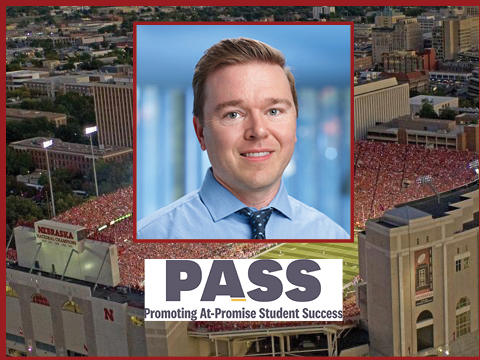Ron Hallett is the newest faculty member at the Pullias Center, having joined last month as a Research Professor.
It’s a full circle moment for Ron Hallett. And this is one special circle for him.
As the child of working class parents growing up in Nebraska, Ron didn’t really plan to attend college since no one in his family had done so. When he decided to pursue college the year after graduating high school, his parents supported his goals, but it was up to him to navigate the application process — and with the help and guidance of his high school teacher Sarah Thomas, did just that.
“Ms. Thomas told me that I should consider going to college, which was not something I had thought much about,” said Ron. “She helped me with my application to the University of Nebraska – Lincoln, and really helped me to believe in my ability to become a successful student.” Ultimately, Ron received his undergraduate degree in communications/public relations.
After receiving his PhD from Rossier in 2009 and working with Pullias’ founding director Bill Tierney, Ron returned to the Pullias fold in 2015 as part of the Promoting At-promise Student Success, or PASS Project, then beginning Phase I of the study. This was his opportunity to make a significant impact on the community he loved, with students that he identified with. And one segment of Ron’s circle grew exponentially.
Fittingly, Ms. Thomas, the high school teacher who first helped Ron see his potential, later joined UNL as an education professor involved with teacher development.
Another key piece of Ron’s full circle.
“I recognize the challenge of navigating college without support,” emphasized Ron. “I often reflect on the support that Ms. Thomas provided for me and how we can make sure that other students have similar opportunities to be supported, but on a systemic level.”
The Promoting At-promise Student Success, or PASS Project, is a true research-practice partnership, with researchers from the Pullias Center developing practices such as Ecological Validation, Proactive Advising and Tailoring Support to help guide practitioners as they seek to improve success for low-income, first-generation and racially-minoritized students.
Ron continued, “The PASS Project has afforded me an opportunity to return to Nebraska and do work in the state where many of my family and friends live. And I touch base with Ms. Thomas when I’m there and share the impact of how supporting even one student can make a difference.”
Now, as one of the lead investigators for the Promoting At-promise Students Success (PASS) Phase II project, a research-practice partnership with the University of Nebraska and Susan Thompson Buffett Foundation, Ron is tasked with developing programs and practices, based on the longitudinal study’s extensive research, that are targeted to help low-income/first-generation students – or ‘at-promise’ students — like he once was.
And just like that, Ron came full circle on his journey.
Learn more about Ron, his work, and his approach to the Pullias/University of Nebraska/Thompson Buffet partnership:
You’ve worked on the PASS Project since its inception, now serving as a lead investigator on Phase II. What has been the most surprising (or interesting) research outcome of the project for you so far?
I appreciate the opportunity to work closely with campus leadership, faculty and staff on exploring important questions about how to improve opportunities for students to access and succeed in higher education. In particular, this project enables me to be in dialogue with practitioners about how to enact recommendations emerging from research. Over the nine years I have been working on the project, I’ve been motivated by seeing some of our recommendations being put into action.
You recently joined the Rossier faculty as Research Professor, after receiving your PhD from USC Rossier in 2009. How does it feel to be back at USC and Pullias, and how do you hope to have an impact on student success and higher education?
When I was looking for a PhD program, I was particularly interested in schools that were doing meaningful work that was in partnership with the students, practitioners, communities and organizations that were part of the research. I was excited to join the Pullias Center as a graduate student because we were working with students and schools on improving access to higher education.
Since graduating in 2009, I continued to serve as a research associate because I continued to find the work meaningful and impactful. Returning as a research professor has provided me an opportunity to build upon and expand the work that I have been doing with a team of researchers at USC and across the nation.
What are other higher education research areas that you’d like to focus on in the future, and why?
I continue to do some work related to helping educational institutions improve opportunities for students experiencing homelessness and housing insecurity to access and succeed in higher education. I plan to build upon that work in the future.








